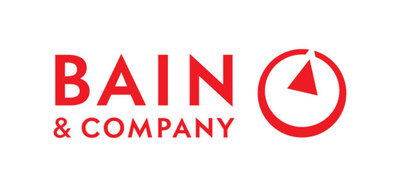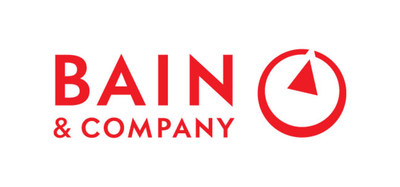
- A quarter of industrial CO2 emissions can already be abated profitably
- AI and data centers could emit 810 million metric tons of CO2 annually by 2035 – 2% of global emissions and 17% of industrial emissions
- Nearly a third of consumers practice six or more sustainable habits daily, an increase from previous years, and 70% want to adopt more
- Half of B2B buyers assign more business to sustainable suppliers, this could increase to two-thirds within three years
BOSTON, Sept. 15, 2025 /PRNewswire/ — Despite ESG backlash dominating headlines over the last year, new research by Bain & Company finds that CEOs, consumers and B2B buyers remain committed to sustainability because of the value it delivers.
Bain’s third edition of The Visionary CEO’s Guide to Sustainability 2025 released today shows that the decline in sustainability as a priority between 2023 and 2024 is bottoming out. While CEOs speak less about sustainability today, they continue to act. Analyzing over 35,000 statements made by 150 leading companies’ CEOs in 2018, 2022, and 2024, Bain’s AI-powered Sustainability Pulse tool identified a clear evolution in rhetoric: CEOs are moving away from viewing sustainability through a compliance and moral lens toward aligning sustainability with business value.
Analysis based on Bain’s proprietary decarbonization lever library finds that 25% of global carbon dioxide emissions can be abated profitably today, through ROI-positive levers such as those that improve energy efficiency, build circular design or support supply chain localization. The report recommends CEOs scale and accelerate these levers now, making them part of their business-as-usual decision making. An additional 32% of emissions reduction levers could become profitable in the medium term, the report finds. Their progress will be shaped by changes in policy, technology, and customer behavior.
“After the initial years of bold ambitions and target setting, CEOs took a reality check on their sustainability agenda last year. Today, CEOs might speak less about sustainability but what they lack in words, they make up in action, a phenomenon we call the ‘do-say’ gap,” said Jean-Charles van den Branden, Bain’s global Sustainability practice leader. “We have identified profitable decarbonization levers ready for companies to power their net zero journey. To succeed, companies need to accelerate what already works, anticipate disruptions and build robustness.
“Our surveys find that more B2B buyers are sourcing for sustainable suppliers and B2C consumers care deeply about the issue and reward companies that make innovative, affordable, and sustainable products. Another interesting observation this year is companies’ rising use of AI to deliver sustainable impact. Those that act sustainably do so because there are tangible returns.”
AI adoption in sustainability has surged, the report finds. Companies use AI to cut energy use, reduce waste, enhance workplace safety, and accelerate toward their sustainability goals. Of the 400 C-suite and sustainability executives recently surveyed by Bain & Company in nine countries#, almost 80% say they see high or very high opportunity for AI to contribute to their sustainability agenda. Yet more than 50% are still in the initial stages of piloting and exploring these AI applications. The top 20% leaders, mostly in technology and manufacturing sectors, use AI in sustainability efforts three times more often than laggards and are nearly thrice more likely to focus on its long-term value creation.
However, industries need to be mindful of the environmental impact of scaling AI, the report warns. Bain’s proprietary climate-economic modeling tool, INTERSECT, finds that in a high-growth scenario, AI and data centers could emit 810 million metric tons of carbon dioxide annually by 2035, or 2% of global emissions and 17% of industrial emissions. In the US, this translates to the share of AI-driven industrial emissions increasing from 18% in 2022 to more than 50% by 2035.
“Powering data centers is an extremely energy intensive affair and regions where fossil fuels dominate would see a greater impact on emissions. In contrast, Europe’s accelerated transition to renewable energy and more measured AI adoption are expected to keep emissions relatively stable,” said van den Branden.
B2B companies are firmly tying commerciality to sustainability. In a Bain survey of more than 750 global B2B customers across automotive, packaging, chemicals, machinery, metals, and construction companies, half said they already buy more from their more sustainable suppliers, and nearly 70% plan to accelerate those purchases over the next three years.
Ninety percent of leaders, those with greater year-on-year revenue growth compared to peers, expect sustainability to have a positive impact on their business over the next three years. Leaders in all regions, even those where governments have stepped back, see sustainability as a catalyst for positive business impact.
B2C consumers echo the same sentiment for sustainability. Bain surveyed more than 14,000 consumers across eight countries*, and despite slightly softening concerns for environmental sustainability amidst geopolitical uncertainty and rising cost of living, four out of five consumers still care deeply about sustainability.
Eighty percent of global respondents still believe their individual choices make a difference, slightly up from past two years’ levels, particularly for fast-growing markets. Nearly a third report practicing six or more sustainable habits daily, and 70% want to adopt even more sustainable routines – a trend consistent across geography and demographics. Boomers have added more new sustainable habits than Gen Z over the last three years, due to their relative wealth, and flexibility to make meaningful changes.
However, today’s consumers face persistent barriers to sustainable living and shopping. Cost is the main barrier to a sustainable lifestyle, especially in developed markets, the report finds. For example, US consumers on average say they are willing to pay up to 13% premium for green products but data from New York University finds those products priced much higher with an average premium of 28%. Businesses can turn this into opportunity by investing in R&D and breakthrough innovation and advocating for supportive policies to meet the price gap.
Another challenge consumers face is limited knowledge on sustainable products. While over 60% feel confident spotting sustainable options, most cannot accurately compare the carbon impact of daily decisions, such as eating a burger versus taking a short airplane flight. Nearly half cite a lack of clear information and transparency as a barrier. Technology is closing the information gap and empowering the consumer. Over half of users of generative AI tools like ChatGPT say they use them to live more sustainably, and about a third rely on AI for eco-friendly product recommendations. Companies must understand what matters to consumers and provide transparent data in a way that both people and AI can easily access, or risk becoming irrelevant.
“The message from this year’s report is clear – sustainability and business ambitions can grow in tandem. And the leaders are those who can cut through the noise, stay focused on their agenda and act consistently,” said van den Branden.
# The nine countries refer to US, Brazil, UK, Germany, Italy, India, Australia, UAE, and KSA.
*The eight markets include US, UK, Italy, Brazil, UAE, KSA, China and Indonesia
Media contacts:
Ann Lee (Singapore) — [email protected]
Gary Duncan (London) — [email protected]
Dan Pinkney (Boston) — [email protected]
About Bain & Company
Bain & Company is a global consultancy that helps the world’s most ambitious change makers define the future.
Across 65 cities in 40 countries, we work alongside our clients as one team with a shared ambition to achieve extraordinary results, outperform the competition, and redefine industries. We complement our tailored, integrated expertise with a vibrant ecosystem of digital innovators to deliver better, faster, and more enduring outcomes. Our 10-year commitment to invest more than $1 billion in pro bono services brings our talent, expertise, and insight to organizations tackling today’s urgent challenges in education, racial equity, social justice, economic development, and the environment. We earned a platinum rating from EcoVadis, the leading platform for environmental, social, and ethical performance ratings for global supply chains, putting us in the top 1% of all companies. Since our founding in 1973, we have measured our success by the success of our clients, and we proudly maintain the highest level of client advocacy in the industry.
View original content to download multimedia:https://www.prnewswire.com/news-releases/sustainability-is-not-dead–ceos-consumers-and-b2b-buyers-continue-to-act-sustainably-and-tie-it-to-business-value-302555982.html
SOURCE Bain & Company


